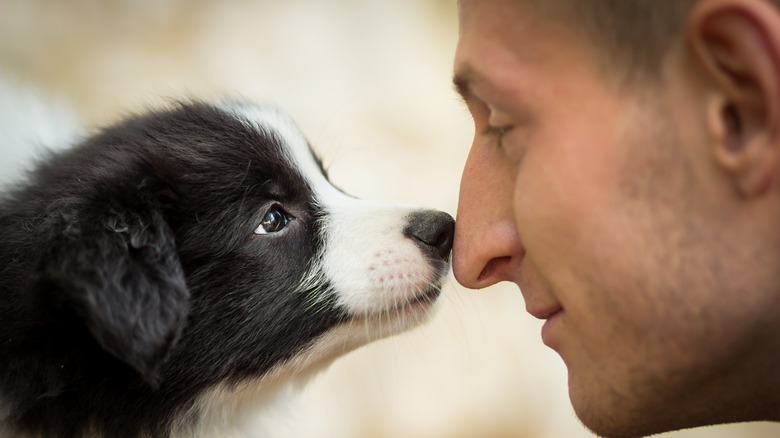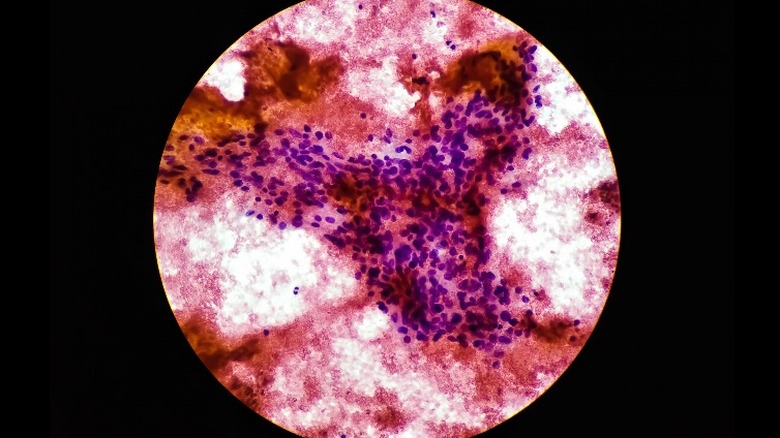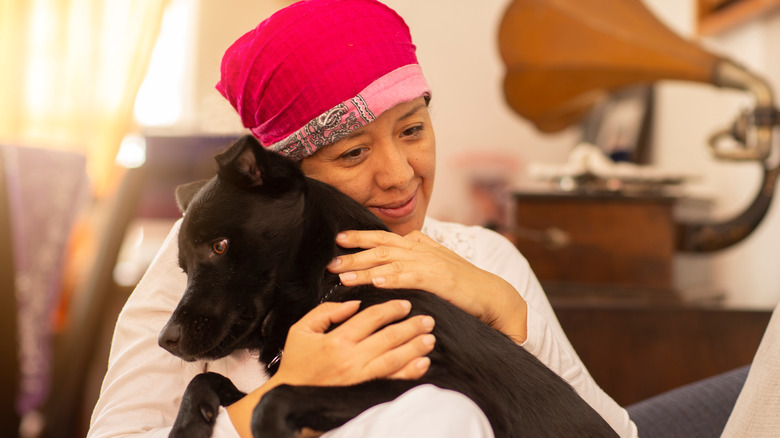How Dogs Are Helping To Sniff Out Cancer In Humans
Showering us with love and affection, dogs are fiercely loyal companions and can certainly benefit our mental health. But did you know research shows that man's best friend has the ability to aid in our physical health too?
According to the American Cancer Society, over 1.9 million new cancer cases are expected to develop in the United States in 2022. Out of the 609,360 total cancer deaths estimated to occur, about 350 deaths each day will be due to lung cancer. In men, the largest number of deaths occur from lung, prostate, and colorectal cancers. For women, breast, lung, and colorectal cancers account for the greatest number of deaths. As the second leading cause of death in the U.S. and the leading cause of death globally, the World Health Organization (WHO) stresses that early detection is key in the prevention of cancer-related deaths.
With dogs' noses being between 10,000 and 100,000 times more sensitive than ours, researchers continue to study dogs and their ability to aid in the early detection of various types of cancer cells (via American Kennel Club).
Dogs can pick up on the smell of cancer cells before they spread
Cancer cells give off a specific odor — traces of which can be detected by dogs through human urine, breath, skin, sweat, and feces (via Medical News Today). Dogs can pick up the scent of cancer cells before they spread, allowing for detection during the early stages of disease development (via American Kennel Club).
Training programs teach medical detection dogs to alert people when they pick up on traces of cancerous odor, according to Medical News Today. The In Situ Foundation, for example, puts dogs through an eight-month training program during which they are exposed to over 300 healthy and cancerous samples of human breath, plasma, saliva, and urine, after which time they are able to distinguish between the two (via American Kennel Club).
A 2015 study examined the ability of scent-trained dogs to detect thyroid cancer in 34 patient urine samples. By turning away to indicate a benign sample, or lying down on the floor to communicate a cancerous sample, the dogs were able to detect the presence, or lack thereof, of thyroid cancer cells with 88.2% accuracy.
What the use of scent-trained dogs could mean for the future of cancer detection
Similarly, a 2019 study showed how three scent-trained beagles were able to accurately detect the presence of lung cancer cells in human blood samples nearly 97% of the time. Additional studies over the years have yielded similar results when examining dogs' ability to detect lung, ovarian, colorectal, and breast cancer (via Medical News Today).
Author of the study Heather Junqueira, who is a lead researcher at BioScentDx, shares how these findings have the potential to impact the future of cancer detection methods, saying, "This work is very exciting because it paves the way for further research along two paths, both of which could lead to new cancer-detection tools. One is using canine scent detection as a screening method for cancers, and the other would be to determine the biologic compounds the dogs detect and then design cancer-screening tests based on those compounds."



